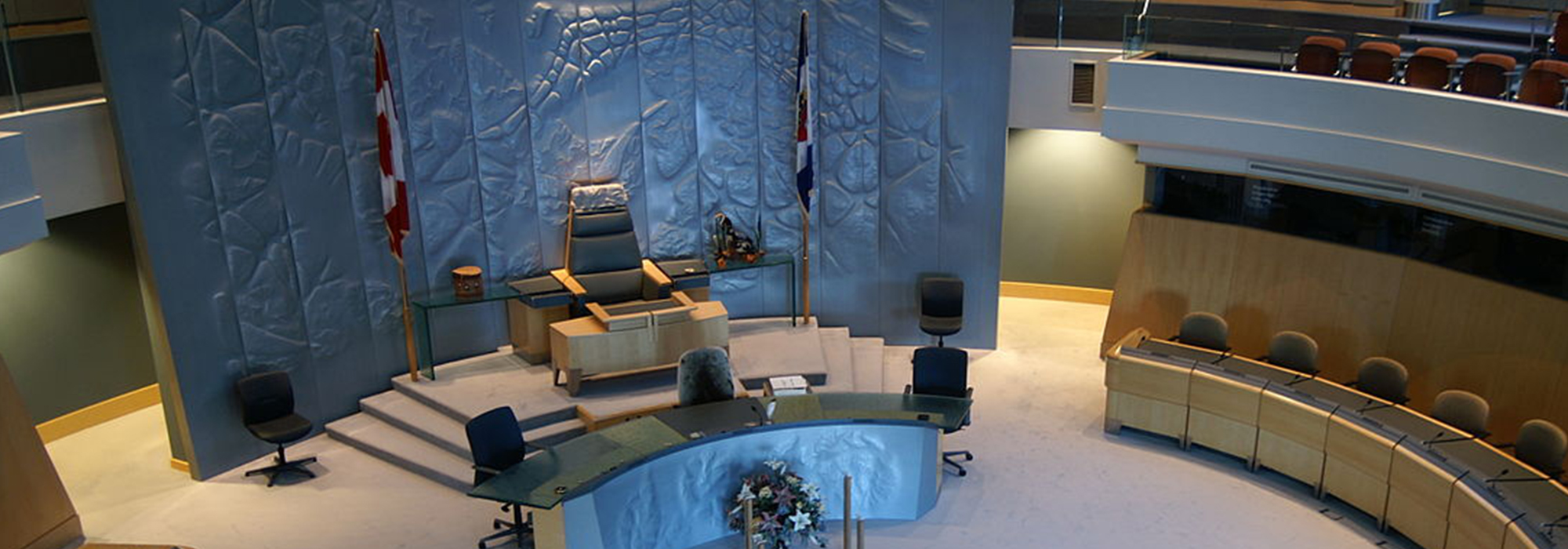
Northwest Territories Premier Bob McLeod issued a “red alert” in November, calling for a national debate on the NWT’s future. “The promise of the North is fading,” he wrote, “and the dreams of northerners are dying as we see the re-emergence of colonialism.”
A earlier, the federal government caused an uproar among territorial politicians when it announced a moratorium on oil and gas exploration in the Arctic. The premiers of the NWT and Nunavut immediately denounced the decision, arguing that the federal government was foreclosing future economic development in their territories. The NWT had only recently gained control of its public land and resources, while negotiations between Ottawa and Nunavut remain ongoing. Months of hand wringing culminated in McLeod issuing his red alert and heading to Ottawa for a press tour with Canada’s national news networks.
McLeod’s statements may serve as a useful rhetorical cudgel, but it obscures hard-won institutional innovations by Indigenous peoples that make the NWT a leader in intergovernmental relations.
In a recently published IRPP Study, I argue that a federation within a federation is emerging in the NWT by the formalization of intergovernmental relations between its public and Indigenous governments. This system is not only innovative but wholly unique. Moreover, it reflects the flexibility of Canada’s federal model and its capacity to recognize diverse nations within its borders.
There is a decades-long history in Northern Canada of settler governments, politicians, editorial writers and activists describing their relationship with Ottawa in colonial terms. Paradoxically, they often did this while resisting northern Indigenous peoples’ struggle for self-determination and the pursuit of modern treaties. Writing in the 1950s, the historian L.H. Thomson called Ottawa’s treatment of the prairie provinces and northern territories an “imperial-colonial relationship.” Newspaper editorials in the 1960s and 1970s regularly vilified the federal government for its control of territorial political and economic life.
Into the 2000s, territorial officials used the language of colonialism to describe the political situation of their governments. For example, following the devolution of land and resource management to Yukon in 2003, Premier Dennis Fentie declared that after “years of negotiation, we are finally masters in our own house.”
Of course, the colonialism decried in this framing is not the colonialism experienced by the North’s Indigenous peoples — that is, a colonialism rooted in Indigenous displacement, dispossession and marginalization. Instead, territorial leaders’ “colonial” experience relates to their inability to access the natural resources under their feet.
Who governs?
The government of the Northwest Territories (GNWT) has had predominantly Indigenous leadership since the 1970s. This has not prevented antagonistic relationships from developing between the GNWT and the territory’s Dene, Métis and Inuvialuit peoples.
The Premier argues that it should be his “democratically elected government” that sets the political, economic and environmental priorities of the territory. In an interview with the CBC, he stated that 52 percent of the territory was protected and could not be accessed for development — a situation exacerbated by the federal moratorium — but he later clarified upon questioning that it was only 43 percent of the NWT that was “currently unavailable to the GNWT for development.”
In making his argument, however, McLeod lumped together protected lands with those of Indigenous peoples that were secured through the settlement of land claims.
Indigenous governments balked at the suggestion that their lands were closed to development because they fell outside the control of the GNWT. As the Tłı̨chǫ government reminded the Premier, the exercise of its “jurisdiction is not a ‘re-emergence of colonialism’…but represents decisions that are being made by Tłı̨chǫ, for Tłı̨chǫ, now and into the future.”
Indigenous governments in the NWT have been created through modern treaties. They are constitutionally protected governments under section 35 of the 1982 Constitution Act, and they enjoy shared and overlapping jurisdiction with the GNWT. As a result, a complex system of multilevel governance is emerging in the territory: a political, constitutional and administrative reality that requires new forms of cooperation and coordination among governments.
A federation within a federation
Mechanisms already exist within the territory to enable this kind of collaboration. Through the devolution process, Indigenous governments and the GNWT created institutions with executive, fiscal and regulatory functions to mediate and regularize intergovernmental relations in the territory. This includes the Intergovernmental Council of the NWT and an agreement to share resource revenues stemming from development.
While it is too early to measure the success of these measures, there are nonetheless some hopeful signs. Under the fiscal sharing agreement, the GNWT has distributed over $20 million to Indigenous governments over the past three years. Indigenous and public government leaders meet annually through the Intergovernmental Council, and a permanent secretariat has been created to support ongoing intergovernmental cooperation through bureaucratic-level working groups.
Indeed, the Premier’s recent comments obscure what is unfolding in the territory. It is not a return to colonialism. Rather, with continuing political will and cooperation, institutional changes such as those mentioned here will help advance decolonization and reconciliation between Indigenous people and settler Canadians.
Photo: Interior of the Legislative Assembly of the Northwest Territories, Canada. Photo by Hideyuki Kamon via Wikimedia Commons.
Do you have something to say about the article you just read? Be part of the Policy Options discussion, and send in your own submission. Here is a link on how to do it. | Souhaitez-vous réagir à cet article ? Joignez-vous aux débats d’Options politiques et soumettez-nous votre texte en suivant ces directives.







